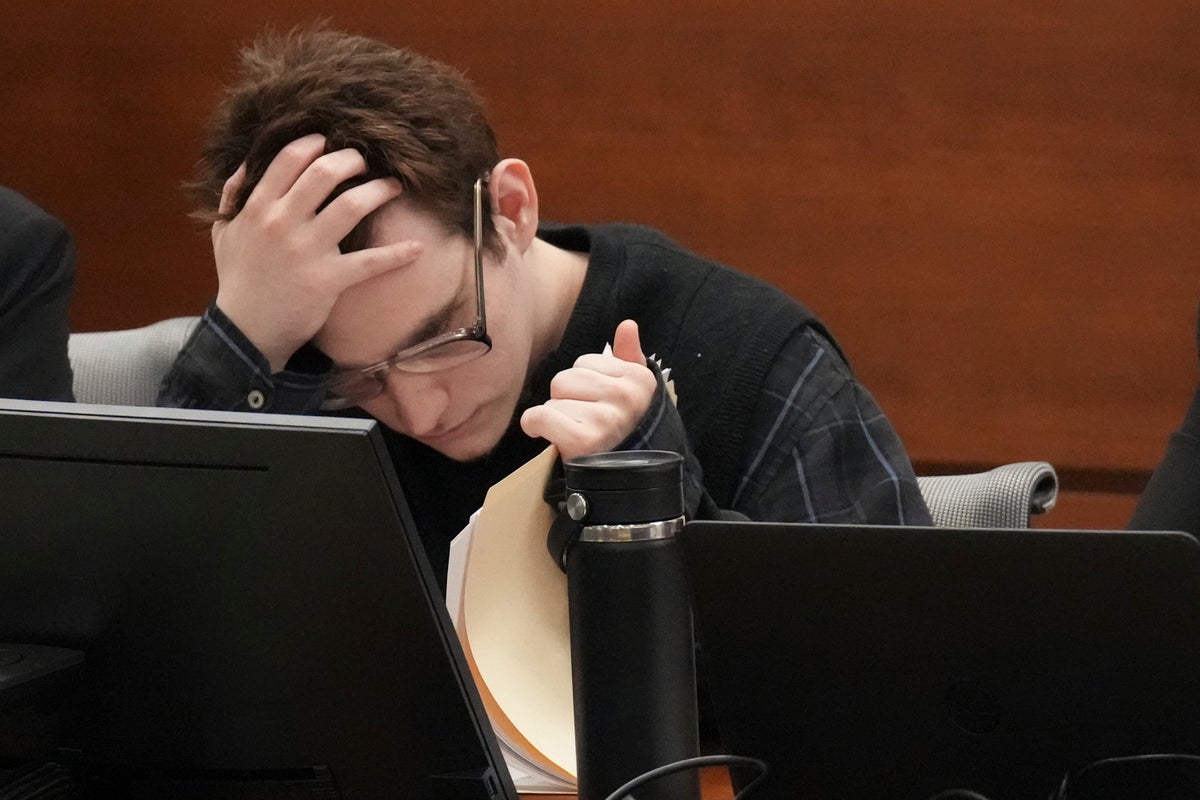
When one of Florida school shooter Nikolas Cruz ’s dogs died after eating a poisonous toad, he began a rampage against the amphibians, a former neighbor testified Wednesday, adding that Cruz’s temper was so volatile he never should have been allowed to own a gun or other weapons.
Paul Gold, who lived next door to the Cruz family when the future mass killer was 10 to 12 years old, told jurors he knew Cruz had psychological problems from their first meeting, when neighborhood children visited his home to play with his daughter and stepson. While he that showing them how to play pool, he shot the cue ball into the other balls on the break and the loud bang “freaked out” Cruz.
“He went and sat on the couch, holding his ears and moving up and down in a strange way. ... He may have screamed a little,” said Gold, who moved away in 2011, seven years before Cruz murdered 14 students and three staff members at Parkland's Marjory Stoneman Douglas High School on Feb. 14, 2018. He went on to describe numerous times he witnessed Cruz erupt in anger and then apologize after calming down.
Under intense cross-examination, prosecutor Jeff Marcus asked Gold if Cruz had any problems with loud noises when he fired 139 shots inside a classroom building. After Cruz's lawyers vehemently objected, Marcus rephrased the question and asked if firing that many shots would have been loud.
“Absolutely,” Gold replied.
Cruz, 23, pleaded guilty in October. The trial before the seven-man, five-woman jury will determine whether he is sentenced to death or life without parole. The jury must be unanimous to impose a death sentence.
His public defenders are in their second week of presenting testimony about Cruz’s troubled life — from his birth to a crack-addicted, hard-drinking prostitute who put him up for adoption to a childhood fraught with emotional and psychological problems that witnesses said were never adequately addressed.
Their defense strategy is aimed at counteracting the emotional, gruesome and graphic evidence and testimony the prosecution presented over three weeks as it laid out the killings and how Cruz planned the attack.
Gold met Cruz after moving in with his then-fiancee Rocxanne Deschamps, who lived next door to Cruz; Cruz's widowed mother, Lynda, who was Deschamps' close friend; and Cruz's younger half-brother, Zachary.
Gold, like previous witnesses, said Cruz was a “strange” child who had difficulty making friends and was picked on by his brother, who had grown bigger and stronger. He said Cruz would become fixated on subjects, recalling he once had a yearlong obsession with penguins.
“That was all he would talk about," Gold testified.
He remembered several occasions where Cruz erupted in violence. For example, Cruz got mad at him and began hitting a motorcycle trailer he owned with a golf club.
“It was just bizarre how angry he would become, how volatile. It was very concerning to watch. It was not normal behavior for a child,” Gold said.
But after Cruz calmed down on that occasion and others, he would apologize profusely.
“It was like another person had done it. But then he would do it again," Gold said.
He said Cruz was close to his family's dogs and when one died after eating a poisonous toad, Cruz “went on a killing spree” against the amphibians.
“He tried to kill every toad in the neighborhood,” Gold said.
He said it wasn't until after the massacre that he learned Cruz owned several firearms.
“He was not the type of person who should have owned any type of weapon,” Gold said.
Gold, Deschamps and their family eventually moved away and then the couple broke up and got into a nasty custody battle over their youngest son. Gold also developed a rift with the Cruz family after he believed Zachary stole a computer.
After Lynda Cruz died less than four months before the massacre, Cruz and his brother lived with Deschamps for about a month.
During his cross-examination, prosecutor Marcus attacked Gold's credibility, accusing him of offering to hire Cruz an attorney to sue Deschamps before the shooting, which Gold denied.
Gold also denied that he wanted to make a movie about Cruz's life. That prompted Marcus to play a recording of a jailhouse call in which Gold told Cruz that a movie producer he knows suggested he make such a film. Cruz said he didn't want that, but Marcus accused Gold of trying to profit off his relationship with the killer.
“Any exploitation of this would be terrible,” Gold responded.
__
AP Writer Freida Frisaro in Fort Lauderdale contributed to this report.







